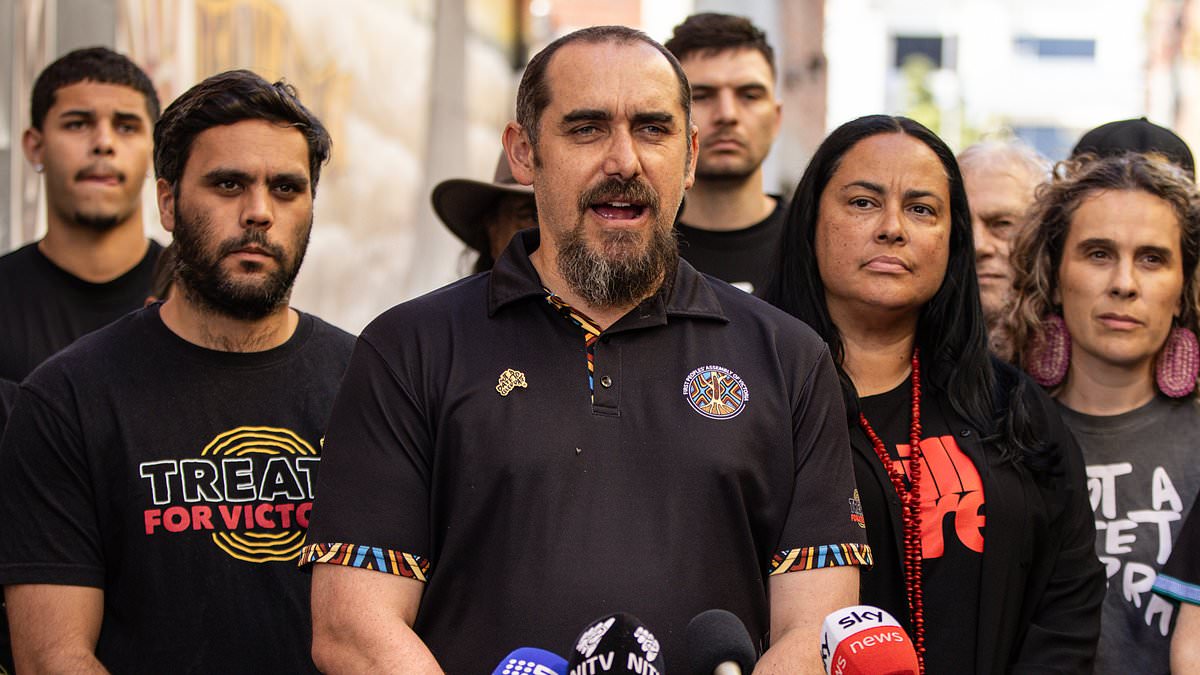Victoria is set to become the first state to sign a treaty with traditional owners, after the First Peoples’ Assembly ratified an in-principle agreement with the Allan government last week.
The Treaty will enshrine the First Peoples’ Assembly of Victoria as a permanent statutory body with new accountability powers.
It will be able to question ministers, hold public hearings and scrutinise government programs, but will have no power to veto policy or legislation.
Legislation could be introduced to parliament within week, pending Cabinet approval.
If passed without major changes, it would mark the first formal Treaty between an n state and traditional owners since colonisation, with a ceremonial signing expected later this year.
The move would effectively create a state-based version of the Voice, which was rejected in a national referendum in 2023.
Assembly co-chair Rueben Berg said the new body would provide independent oversight of government policy from a First Peoples’ perspective.
‘The first statewide Treaty will make the First Peoples’ Assembly of Victoria permanent and expand our responsibilities, including having the power to hold government to their promises,’ he said.
‘We will be able to make representations to and work with Ministers to ensure they are delivering for First Peoples.
‘We will provide concrete solutions and recommendations to improve outcomes for our communities, helping to make the most of investment in systems and programs directed to First Peoples.
‘It is not just about being able to say, “This is no good”; it is saying “This is what we recommend should be happening.” That is the key step,’ he told Nine.
He said the process could pave the way for other states.
‘We are looking at this as the first statewide treaty which will set up the processes to enable future conversations to continue happening. That’s why it was critical to get the architecture right,’ he said.
Minister for Treaty Gabrielle Williams said the principle was simple: ‘When you listen for the voices of those whose policies you directly impact, those policies are better.’
The Treaty process has cost the Victorian government $382million over the past decade.
It was shaped by the broader Yoorrook Justice Commission inquiry, which called for far-reaching reforms including the Treaty.
In its final report, delivered in July, Yoorrook recommended a statewide redress scheme, recognition of Indigenous sovereignty, exemptions from taxes, access to natural resource revenues, and a formal government apology.
It documented at least 50 massacres across Victoria by the 1860s, concluding that violence, disease, dispossession and cultural erasure had brought about the ‘near-complete physical destruction’ of Aboriginal people in the state.
The report has given the Victorian government a two-year window to respond to its findings.
Allan said the findings made for ‘tough reading’ because they ‘tell the truth’ about how the state was colonised.
However the Liberal opposition and groups such as the n Christian Lobby have criticised the process, warning it risks deepening division.
‘As Christians, we care deeply about the wellbeing of Indigenous ns. But this Treaty risks trapping Indigenous communities in life-long dependency instead of truly “closing the gap”,’ an n Christian Lobby spokesperson said.
‘It entrenches racial division and threatens to fracture our State. The truth is hard to ignore: “separatism” disguised as self-determination does more harm than good.
‘Allan’s state treaty will not empower the Indigenous community. It will instead make every Victorian worse off.’
Liberal opposition leader Brad Battin labelled it a ‘Victorian Voice to Parliament’.
‘This has already been put to a vote throughout the state, and Victoria has said that they overwhelmingly don’t want a Voice to Parliament,’ Battin previously said.
‘Unlike Jacinta Allan, I am listening. While the Premier pushes ahead with her ideological agenda, families are battling a cost-of-living crisis, surging crime, and a health system at breaking point.’
